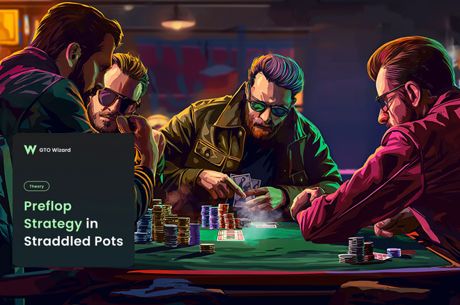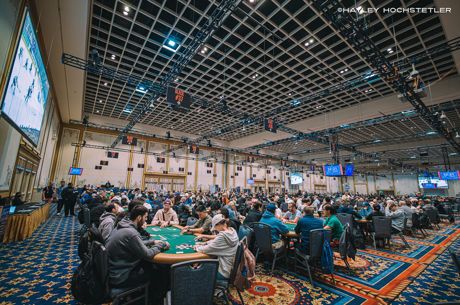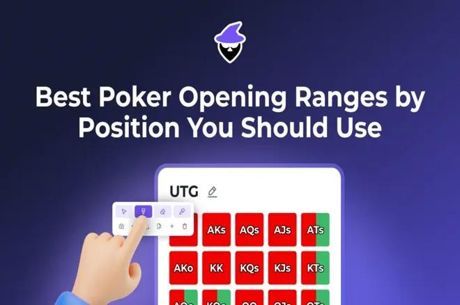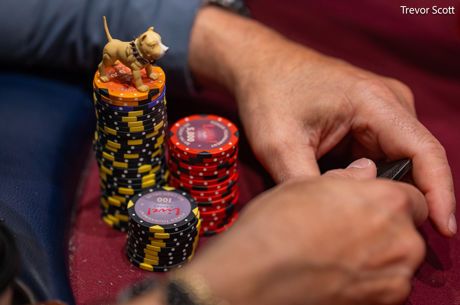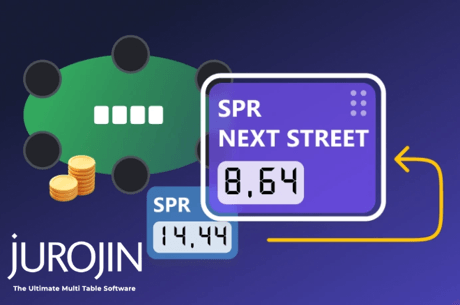5 GTO Discoveries That Changed the Game of Poker
The evolution of poker strategy over the past two decades has been nothing short of revolutionary. With the rise of solvers and poker tools, players now approach the game with a level of knowledge that was once unimaginable.
Here, GTO Wizard takes a closer look at five key GTO discoveries have stood out that have changed how poker is studied, taught, and played at the highest levels.
1. Push-Fold Strategies
One of the earliest and most impactful GTO breakthroughs came with the development of push-fold strategies for short stack play. As online tournaments and sit-and-gos gained popularity in the mid-2000s, tools like SitandGo Wizard emerged, giving players a huge advantage by teaching them when to push all-in or fold based on chip EV.
Poker Ranges: 10 Poker Range Charts to Play Winning Poker
By the early 2010s, understanding optimal push-fold ranges became a defining edge for serious grinders. Knowing precisely when to shove or fold with 10 big blinds or less was no longer guesswork, it became a science. Today, these strategies have evolved even further, powered by modern solvers that allow for real-time ICM-aware calculations and spot-specific adjustments.
Review Iconic WSOP Final Tables with New GTO Wizard Event Feature
2. Range-Betting
Range-betting marked another major leap in strategic thinking. With the help of post-flop solvers, players discovered that they could bet their entire range in certain situations, often using small sizes that pressured opponents into mistakes.
This concept became especially prevalent in cash games, where the goal was to exploit the inherent imbalance in most players’ responses.
Instead of selectively betting only strong hands, players began betting nearly all hands on certain boards, leveraging the protection and pressure that small sizing provides. Range-betting now plays a foundational role in solver-approved post-flop play.

3. Overbetting
Before solvers, overbetting—betting more than the size of the pot—was rarely used. But with GTO tools revealing its strategic value, overbetting has become a staple in the modern pro’s toolkit.
Solvers demonstrated that overbets could maximize expected value in polarizing situations, where a player’s range is either very strong or very weak. It’s now common to see massive turn and river overbets, especially in spots where players hold strong value hands or bluff with hands that block the opponent’s best calling range. Once considered unorthodox, overbetting is now recognized as an essential weapon in advanced play.
4. Blockers
The concept of blockers was once a niche idea, but solvers have brought it into the spotlight. A blocker is a card in your hand that reduces the likelihood your opponent holds a specific hand. More importantly, solvers have shown that certain blockers unblock your opponent’s folding range, making them prime candidates for bluffing.
For example, bluffing with the ace of hearts on a heart draw board is often preferable because it reduces the chance your opponent has a flush, while unblocking weaker hands they might fold. This nuanced understanding of blocker dynamics is now central to high-level decision-making, especially in river bluffing and turn barreling situations.
5. Equity Denial
The concept of equity denial has reshaped how players approach value betting on early streets. Instead of slow-playing vulnerable value hands, solvers recommend betting larger to deny equity to hands with overcards that might fold rather than improve.
Unlike traditional protection betting, equity denial focuses on pricing out hands that could catch up but won't continue versus aggression. Tools like GTO Wizard help players recognize these opportunities, showing when larger bets on the flop or turn prevent opponents from realizing their equity with hands that won't call a shove but might beat you later.





